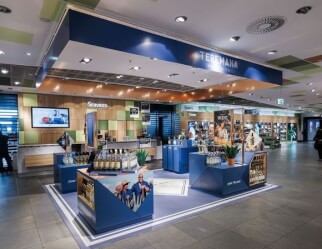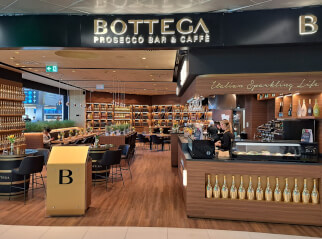Route to Recovery: Associations, Advocacy and Lobbying
If there is one takeaway from the Duty Free World Council (DFWC)’s Route to Recovery webinar held on September 17 it’s this: to succeed in this recovery we as a collective industry need to be proactive, have cooperation and work together around the globe.
Speaking on behalf of the Duty Free World Council at the webinar was Past-President Frank O’Connell, who updated attendees on efforts the association has been undertaking.
The Duty Free World Council (DFWC) has been working closely on its own and with its international partners on multiple ongoing activities and efforts, including helping to create protocols and to have the the International Civil Aviation Organization (ICAO) Cart Report recognized as the standard framework to reopen airport retail.
Additionally, the association has created the DFWC Academy, an online course for retail staff to take before going back to work. This program instructs workers about operating stores safely, and has been very well received, with a success rate bordering on 100%.
International travel and tourism organizations are working together, offering joint letters to the G7 nations along with South Korea, Australia and Spain, seeking support for global tourism and keeping travel retail top of mind.
Last week DFWC and ACI issued a joint press release that they had worked on together to request a temporary increase in duty free limits and the ability to sell duty free in arrivals — something that already takes place in many countries. They also made a point to remind governments of the importance of travel retail to the success of airports, which themselves are essential for global business. DFWC and ACI are also working together to get the UK government to reverse its recent decision to not allow duty free or a VAT refund.
On a regional level
APTRA Executive Director Christina Oliver said that since March the association has lobbied governments across the Asia Pacific region for the travel retail industry to be recognized – for financial support, and for relief measures, for awareness, to be at forefront for consideration.
An issue across the globe and certainly within Asia Pacific is the fragmentation of policies regarding borders and quarantine periods, so APTRA has been campaigning for “a holistic understanding of what the restrictions are.” As borders open up, the fragmentation of policies and restrictions make them difficult to comprehend. There are different policies around testing, and quarantine times also differ: 72 hours in one country, 48 hours in another country. The association is looking at how to communicate for consistency around rules and eliminate quarantine time.
Oliver reminded us that we cannot lose sight of other issues that continually affect the industry, such as regulations. “They have not ceased,” she said. One morphed campaign APTRA is currently working on is how to deal with stock that is not selling because of border closures and the resultant lack of traffic but which does not meet current plain packaging regulations.
In Canada, the Frontier Duty Free Association (FDFA) has also been lobbying the government about stock, in this case, stock that is set to expire. As the border between Canada and the US is closed for all but essential travel, Canada’s border stores have lost anywhere from 90% to 100% of their business, and there are no indications that the border will open before the end of 2020.
Coalition of the Hardest Hit
Associations the world over have banded together. This is the certainly the case between airports and airport retailers and other organizations working in the air industry ecosystem, but it is also the case with other less directly associated groups. As an example, Canada’s FDFA joined with more than 40 businesses including the Hotel Association of Canada (HAC), the Tourism Industry Association of Canada (TIAC), the Indigenous Tourism Association and Festivals and Major Events Canada to create the Coalition of the Hardest Hit, which is lobbying the government for continued aid, in particular to help keep their employees on board.
As O’Connell stated during the webinar: “There is a huge amount still to do, but the industry all working together, the coordination of activity, and the sharing of information and approaches is enormously beneficial.”









.jpg?&resize.width=322&resize.height=483)
